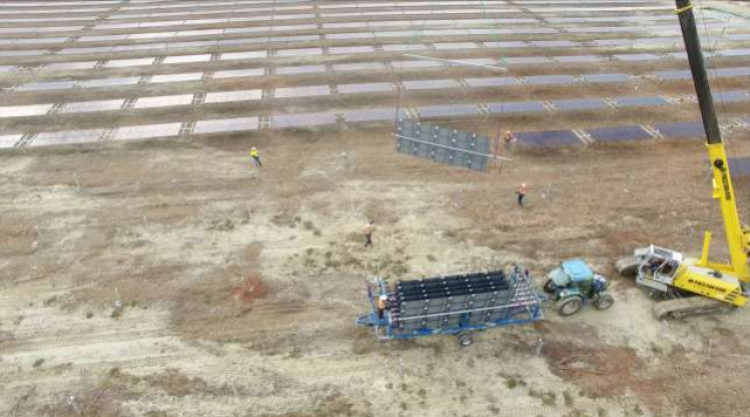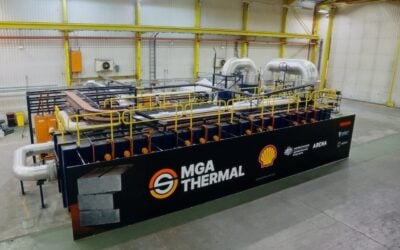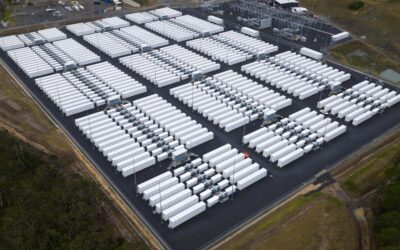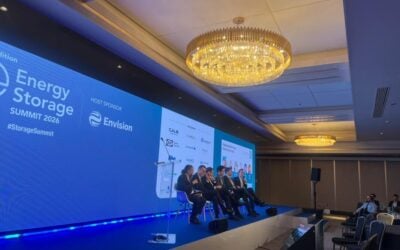
A state government-owned energy corporation in Queensland, Australia, is looking to build a list of preferred suppliers of large-scale battery energy storage system (BESS) technology.
This morning (8 November), state government politician Mick de Brenni announced a call for expressions of interest on behalf of Energy Queensland, which operates electricity distribution, retail and energy services businesses.
A communication from the office of De Brenni, who is Queensland’s Minister for Energy, Renewables and Hydrogen as well as its Minister for Public Works and Procurement, said that respondents will be considered as suppliers of large batteries which would be connected to the state’s electricity distribution network.
To integrate the growing share of renewable energy on local networks, megawatt-scale grid battery storage systems will be connected to the 11kV, 22kV and 33kV distribution network and Energy Queensland is anticipating a need for a variety of differently-sized battery systems to perform multiple critical tasks relating to integrating renewables and stabilising the network.
Try Premium for just $1
- Full premium access for the first month at only $1
- Converts to an annual rate after 30 days unless cancelled
- Cancel anytime during the trial period
Premium Benefits
- Expert industry analysis and interviews
- Digital access to PV Tech Power journal
- Exclusive event discounts
Or get the full Premium subscription right away
Or continue reading this article for free
Companies eligible could include whole integrated BESS solution providers — encompassing everything from power conversion systems (PCS) to batteries and control systems — or suppliers of specific important components or equipment like power conversion systems (PCS) or battery storage units that comprise batteries, battery management systems (BMS) and monitoring systems.
“Strong preference” will be shown to companies that employ people in the state and include local content, which could mean metals or minerals mined or processed in Queensland as well as products manufactured from them. This is in line with the local government’s ‘Buy Queensland’ procurement strategy, de Brenni said.
Energy Queensland is initially seeking suppliers for 4MW BESS projects with two or four hours’ storage duration (8MWh to 16MWh). The corporation’s executive general manager for engineering said that this request for pricing and technical response on what is likely to be a “small subset of the potential system size offerings,” is being done so that Energy Queensland can make a “value for money comparison” between prospective suppliers.
“These system sizes have been chosen for initial comparison as they are the most likely size for installation in the near-term, however, Energy Queensland may procure larger or smaller systems depending on business needs at the time,” Energy Queensland’s Peter Price said.
Price stated also that system integrators and professional services providers relating to system integration of BESS are not being sought through this process, which is limited to battery, battery storage and inverter / PCS suppliers.
Respondents have been given four weeks to respond from 5 November.
One in three detached houses in the state already have solar PV on their roofs, and Queensland is targeting sourcing 50% of its energy from renewables by 2030. The government said this energy storage procurement drive would support the long-term need for storage to help achieve that and further goals in the future.
In late October, Energy-Storage.news reported that another Queensland government-owned entity which generates power mostly from coal and gas and some hydroelectric facilities is considering two large-scale BESS projects, including a 150MW / 300MWh BESS at the site of one of its coal plants. The company, Stanwell, said this was in recognition of the importance of battery storage in enabling the creation of multi-gigawatt Renewable Energy Zones (REZ) in the state.
A couple of weeks earlier, renewable energy developer Genex Power said it had selected Tesla’s Megapack BESS products to equip its own 50MW / 100MWh Bouldercombe Battery Project which will be connected to the transmission network.





